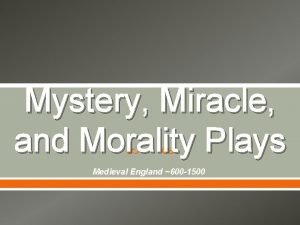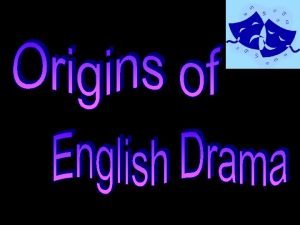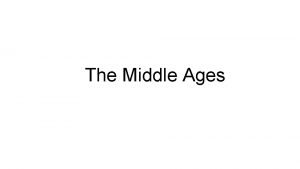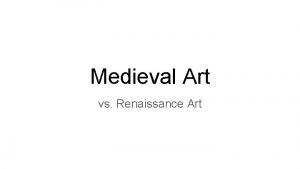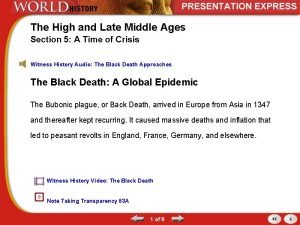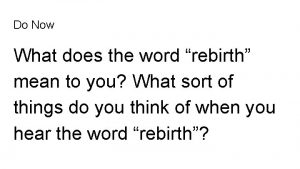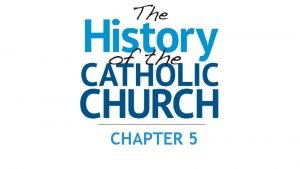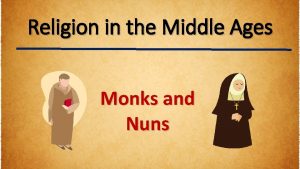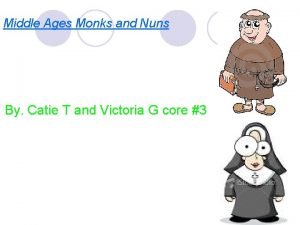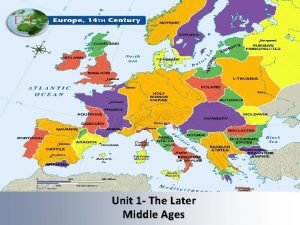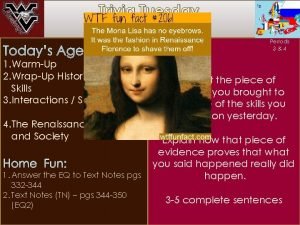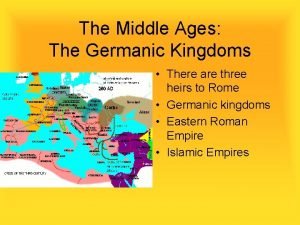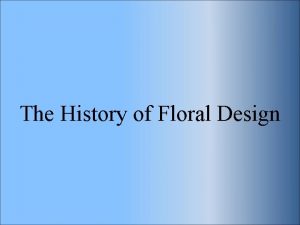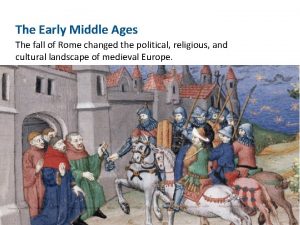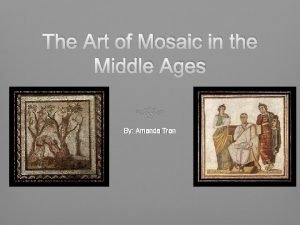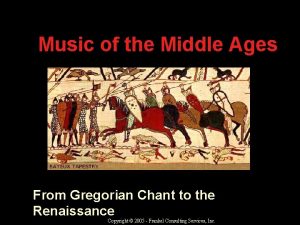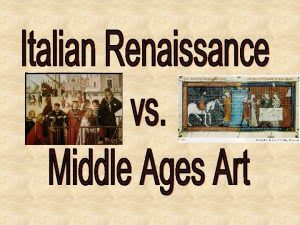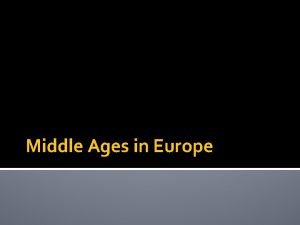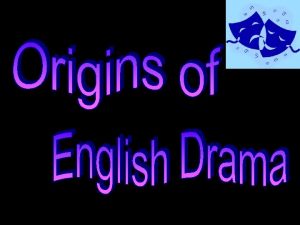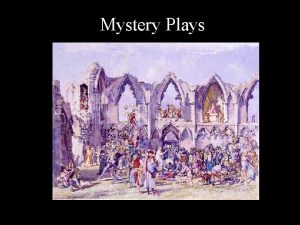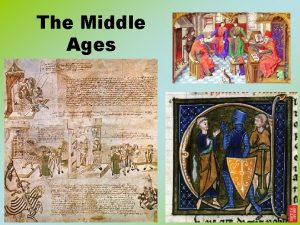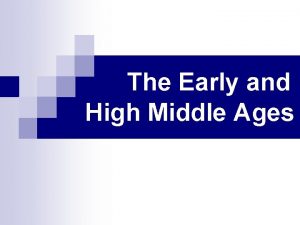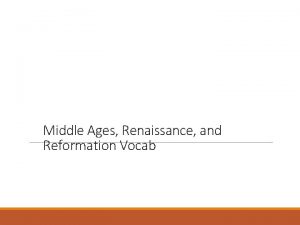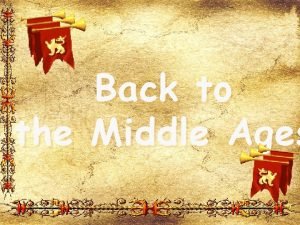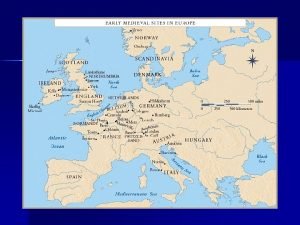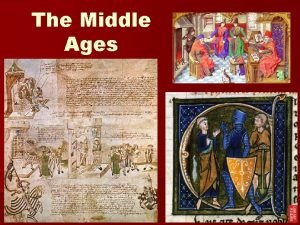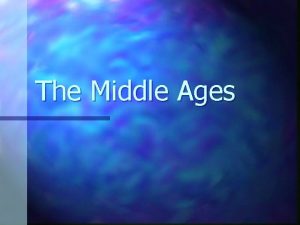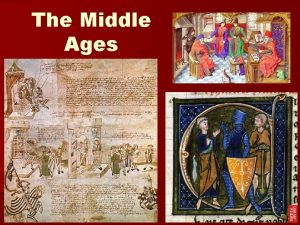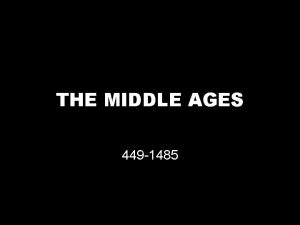The Middle Ages 1 Miracle and Mystery plays


















- Slides: 18


• The Middle Ages 1. Miracle and Mystery plays 2. Trade Guilds 3. Pageants 4. Morality plays • Elizabethan Theatre 1. Stage 2. Actors 3. Scenes 4. Audience • The Globe Theatre

Mystery plays • they developed from the 10 th to the 16 th century • representation of scenes from the Bible • they were performed in churches

• little by little, out into the churchyard • then, on pageants • responsibility taken on by the trade guilds

Miracle plays • Representation of lives of saints • Combination of professional and amateur actors • Performed on pageants • Acted in English

Trade Guilds • they were groups of tradesmen and artisans • guild derives from the Old English geld, which means “payment” • on particular feast days they prepared biblical plays to perform

Pageants • processions associated with secular and religious rituals • important aspect of the celebration of Corpus Christi

• re-enacted the entire history of salvation • plays were performed in wagons (pageants) • each sponsored by a guild

Morality plays • more refined • invented plots • personification of vices and virtues • didactic purpose • written in vernacular

Everyman • Dutch Elkerlijk • late 15 th century • Everyman represents all mankind • is summoned by God, tries to convince several friends to accompany him

• allegorical characters, personifying abstract ideas: • • • Fellowship Kindred, Cousin Goods Good Deeds Knowledge Beauty, Strength, Discretion, Five Wits

Elizabethan Theatre • It was influenced by Humanism, which developed in all Europe • authors were supported by the Queen • the Queen had to approve all the plays (Master of Revels) • theatre was considered a form of entertainment and not an art

The Stage composed of: • a baldachin that covered it • the inner stage behind a curtain • a balcony • a garret where there were machines • a trap door

The Audience • plays attracted people from all classes 1. Royals 2. Nobles 3. Commoners • a theatre could hold from 1500 to 3000 people

The Scene • actors used very simple objects • actors represented physical sensation and feelings with words • theatre building was deeply linked with the performance

The actors The Actors • the reputation of early Elizabethan actors was not good • later they became the equivalent of today’s superstars • young boys played female roles

The Globe • it was built from the timbers of “ Theatre ” in 1559 • it went up on flames in 1613 • it was destroyed another time by Puritans in 1644 • most of the Globe and all of its stage was open air

• above the main entrance there was the inscription “Totus mundus agit histrionem" (the whole world is a playhouse) • Richard Burbage built the Globe for the Chamberlain’s Men • Shakespeare appeared as an actor on the Globe’s stage
 Examples of miracle plays
Examples of miracle plays Miracle and mystery plays
Miracle and mystery plays Dark ages vs middle ages
Dark ages vs middle ages Renaissance vs medieval art
Renaissance vs medieval art The high and late middle ages section 5 quiz
The high and late middle ages section 5 quiz Similarities between middle ages and renaissance
Similarities between middle ages and renaissance Similarities between middle ages and renaissance
Similarities between middle ages and renaissance Monks and nuns in the middle ages
Monks and nuns in the middle ages Monks and nuns in the middle ages
Monks and nuns in the middle ages Map of europe in middle ages
Map of europe in middle ages Renaissance vs middle ages
Renaissance vs middle ages Germanic kingdoms
Germanic kingdoms Colonial style floral design
Colonial style floral design Early middle ages
Early middle ages Middle ages mosaics
Middle ages mosaics Late middle ages timeline
Late middle ages timeline Gregorian chant middle ages
Gregorian chant middle ages Dark ages vs renaissance
Dark ages vs renaissance Feudalism def
Feudalism def
